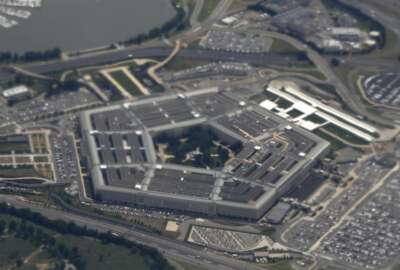

Special hiring authorities for personnel working in government-owned depots are set to expire in September.
Correction: An earlier version of this article incorrectly reported that direct hiring authorities for DoD organic industrial base personnel are set to expire in 2018. Congress has since extended those authorities through 2021.
The Army says recent authorities Congress granted the Defense Department to fast-track the hiring of new maintenance employees have gone a long way toward filling its pipeline of younger workers. But those temporary authorities need to be made permanent, officials said.
The need for rapid hiring is particularly acute because half of the roughly 12,000 civilian employees in the Army’s organic industrial base are over the age of 50 and are nearing retirement eligibility, said Lt. Gen. Aundre Piggee, the Army’s deputy chief of staff for logistics.
“We are developing a succession plan to make sure we retain critical skill sets as these skilled artisans retire,” he told the House Armed Services Committee last week. “But on average it takes about 10 years to train an apprentice to be a journeyman. The math makes it clear we need the flexibility to quickly hire and retain the right talent.”
Congress gave the military services and Defense agencies blanket approval to directly hire as many white and blue collar workers as they deemed necessary to staff government-owned depots, arsenals and shipyards as part of the 2017 Defense authorization bill. It was initially set to expire this year; lawmakers have since renewed the authority through 2021.
Piggee said the Army had used the authority to hire about 500 people thus far, and asked that it be made permanent.
“There is fierce competition for that talent from industry employers. The [organic industrial base] needs the flexibility to quickly hire and retain the right talent,” he said.
Indeed, according to Pentagon statistics, the Army’s projected personnel turnover rate within its organic depots is the highest in the Defense Department: 25 percent between 2017 and 2019.
Like the other military components, the Army uses a mix of full-time permanent, temporary and term employees to staff its depots. Piggee said the service plans to convert at least some of its temporary workforce to permanent status as one way to replace retiring employees.
“Our permanent employees are absolutely critical to success,” he said. “ We’re able to manage our workload and support those permanent employees by assisting with hiring temp and term employees, and in some cases, contract capability. But we utilize the entire workforce, both permanent, temp and term, to manage the workload as it increases throughout the course of the year, based on specific requirements that we think are not long-term. Those term employees also have an opportunity, as our aging workforce retires, that’s where we can select that skilled workforce that are already trained to replace those artisans that we have in place, in a permanent capacity.”
But Piggee and other Defense officials say the trend of late congressional appropriations and continuing resolutions in recent years has complicated the process of forecasting how much maintenance each depot will be able to complete in any given year, including the number of employees the government and its vendors will need.
“Late receipt of funds impact our ability to plan and program,” he said. “It also impacts our second and third-tier contractors. Sometime they are sole-source, small mom-and-pop companies with a small workforce. And what they look for is predictability and funding and consistency so they have the funds and appropriate personnel. These are skilled personnel that they need to maintain and retain.”
Copyright © 2025 Federal News Network. All rights reserved. This website is not intended for users located within the European Economic Area.
Jared Serbu is deputy editor of Federal News Network and reports on the Defense Department’s contracting, legislative, workforce and IT issues.
Follow @jserbuWFED

